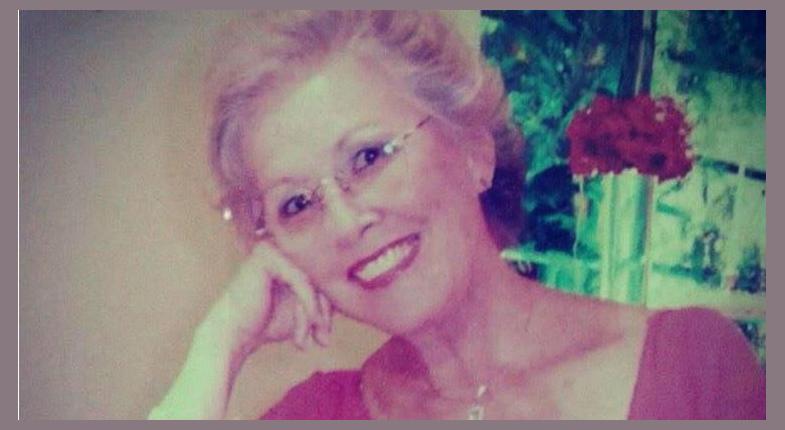 Zélia Barbosa
Zélia Barbosa
Zélia Duncan: A Musical Journey of Passion and Controversy
Zélia Barbosa, better known by her stage name Zélia Duncan, embarked upon a multifaceted musical journey leaving an enduring mark on the Brazilian music scene. Her artistry delved deeply into themes of love, social justice, and personal identity, often stirring controversy and sparking dialogue.
Early Life and Influences:
Born in Vitória, Espírito Santo, Brazil, Zélia Duncan's musical roots trace back to her childhood. Inspired by her father's guitar playing, she began composing songs at a young age. Her adolescence was peppered with performances in local bars and festivals, honing her skills as a vocalist and songwriter.
Career Breakthrough:
Duncan's breakthrough came in 1990 with the release of her debut album, "Zélia Duncan." The album garnered critical acclaim for its introspective lyrics and soulful melodies. However, it was her sophomore album, "Intimidade," that propelled her to stardom. Featuring the iconic hit "Pau de Arara," the album explored themes of love, longing, and the complexities of human relationships.
Pau de Arara: A Cultural Phenomenon
"Pau de Arara," a poignant ballad about the hardships faced by migrants, became a cultural phenomenon. Its poetic lyrics and haunting melody resonated deeply with audiences, cementing Zélia Duncan's status as a socially conscious artist. The song sparked national conversations about migration, inequality, and the human spirit's resilience.
Challenges and Controversies:
Zélia Duncan's music often provoked controversy due to its frank exploration of sensitive topics. Her outspoken lyrics about same-sex relationships, political injustice, and the LGBTQ+ experience drew both admiration and criticism. However, Duncan remained unyielding in her commitment to authenticity and using her voice to advocate for the marginalized.
Discography:
Over the course of her prolific career, Zélia Duncan released numerous acclaimed albums, including:
* "Zélia Duncan" (1990)
* "Intimidade" (1994)
* "Acesso" (1997)
* "Tudo É Um" (2000)
* "Eu Me Transformo Em Outras" (2003)
* "Identidade" (2006)
* "Pelo Sabor do Gesto" (2011)
* "Invento Popular" (2014)
* "Minha Voz Fica" (2018)
* "Pelespírito" (2021)
Members:
Throughout her career, Zélia Duncan has collaborated with a diverse group of musicians, including:
* Marcos Lessa (guitar)
* Chico Pinheiro (bass)
* Celso de Almeida (drums)
* Letieres Leite (percussion)
* Ney Conceição (keyboards)
* Jorge Hélder (vocals)
Legacy and Impact:
Zélia Duncan's legacy extends far beyond her musical contributions. She has become a respected voice in social and cultural discourse, using her platform to promote tolerance, equality, and the celebration of diversity. Her music continues to inspire and connect audiences, leaving a lasting impact on Brazilian culture and beyond.
Zélia Barbosa, better known by her stage name Zélia Duncan, embarked upon a multifaceted musical journey leaving an enduring mark on the Brazilian music scene. Her artistry delved deeply into themes of love, social justice, and personal identity, often stirring controversy and sparking dialogue.
Early Life and Influences:
Born in Vitória, Espírito Santo, Brazil, Zélia Duncan's musical roots trace back to her childhood. Inspired by her father's guitar playing, she began composing songs at a young age. Her adolescence was peppered with performances in local bars and festivals, honing her skills as a vocalist and songwriter.
Career Breakthrough:
Duncan's breakthrough came in 1990 with the release of her debut album, "Zélia Duncan." The album garnered critical acclaim for its introspective lyrics and soulful melodies. However, it was her sophomore album, "Intimidade," that propelled her to stardom. Featuring the iconic hit "Pau de Arara," the album explored themes of love, longing, and the complexities of human relationships.
Pau de Arara: A Cultural Phenomenon
"Pau de Arara," a poignant ballad about the hardships faced by migrants, became a cultural phenomenon. Its poetic lyrics and haunting melody resonated deeply with audiences, cementing Zélia Duncan's status as a socially conscious artist. The song sparked national conversations about migration, inequality, and the human spirit's resilience.
Challenges and Controversies:
Zélia Duncan's music often provoked controversy due to its frank exploration of sensitive topics. Her outspoken lyrics about same-sex relationships, political injustice, and the LGBTQ+ experience drew both admiration and criticism. However, Duncan remained unyielding in her commitment to authenticity and using her voice to advocate for the marginalized.
Discography:
Over the course of her prolific career, Zélia Duncan released numerous acclaimed albums, including:
* "Zélia Duncan" (1990)
* "Intimidade" (1994)
* "Acesso" (1997)
* "Tudo É Um" (2000)
* "Eu Me Transformo Em Outras" (2003)
* "Identidade" (2006)
* "Pelo Sabor do Gesto" (2011)
* "Invento Popular" (2014)
* "Minha Voz Fica" (2018)
* "Pelespírito" (2021)
Members:
Throughout her career, Zélia Duncan has collaborated with a diverse group of musicians, including:
* Marcos Lessa (guitar)
* Chico Pinheiro (bass)
* Celso de Almeida (drums)
* Letieres Leite (percussion)
* Ney Conceição (keyboards)
* Jorge Hélder (vocals)
Legacy and Impact:
Zélia Duncan's legacy extends far beyond her musical contributions. She has become a respected voice in social and cultural discourse, using her platform to promote tolerance, equality, and the celebration of diversity. Her music continues to inspire and connect audiences, leaving a lasting impact on Brazilian culture and beyond.